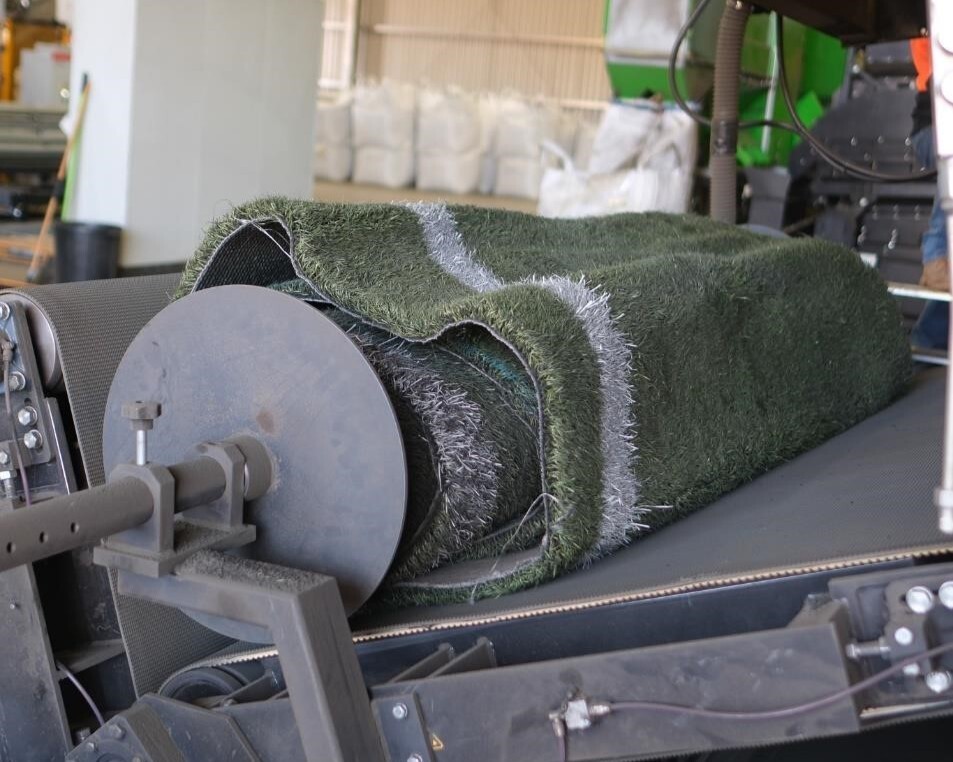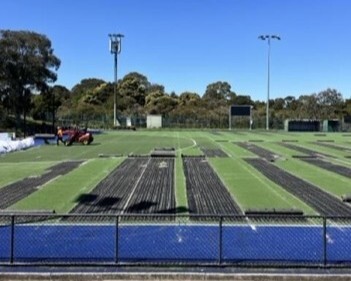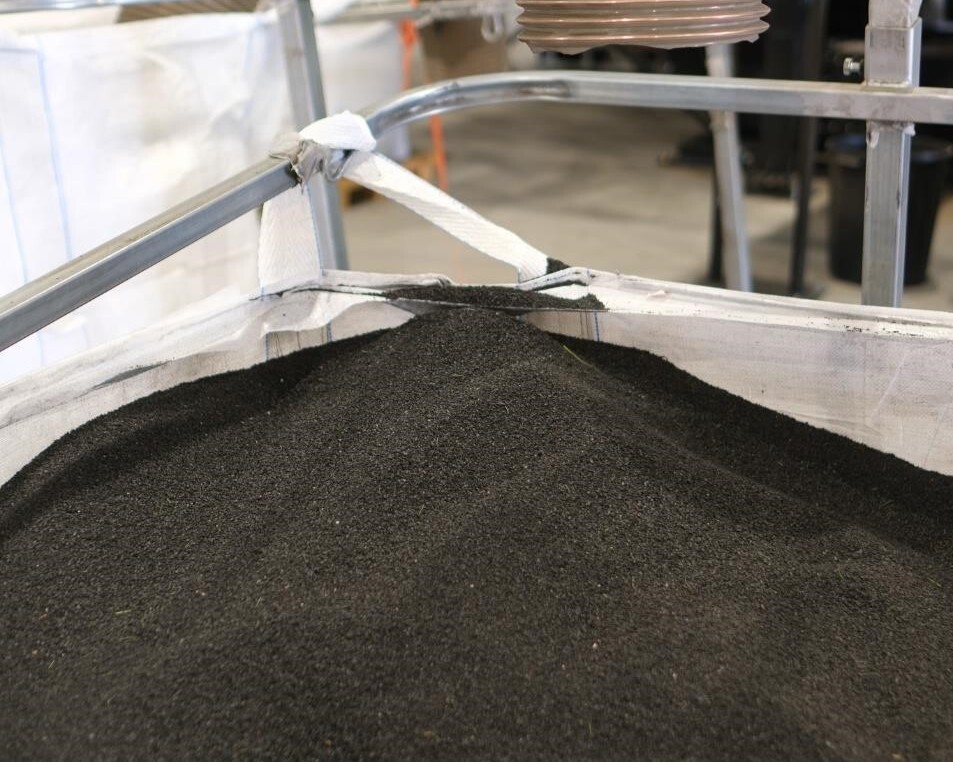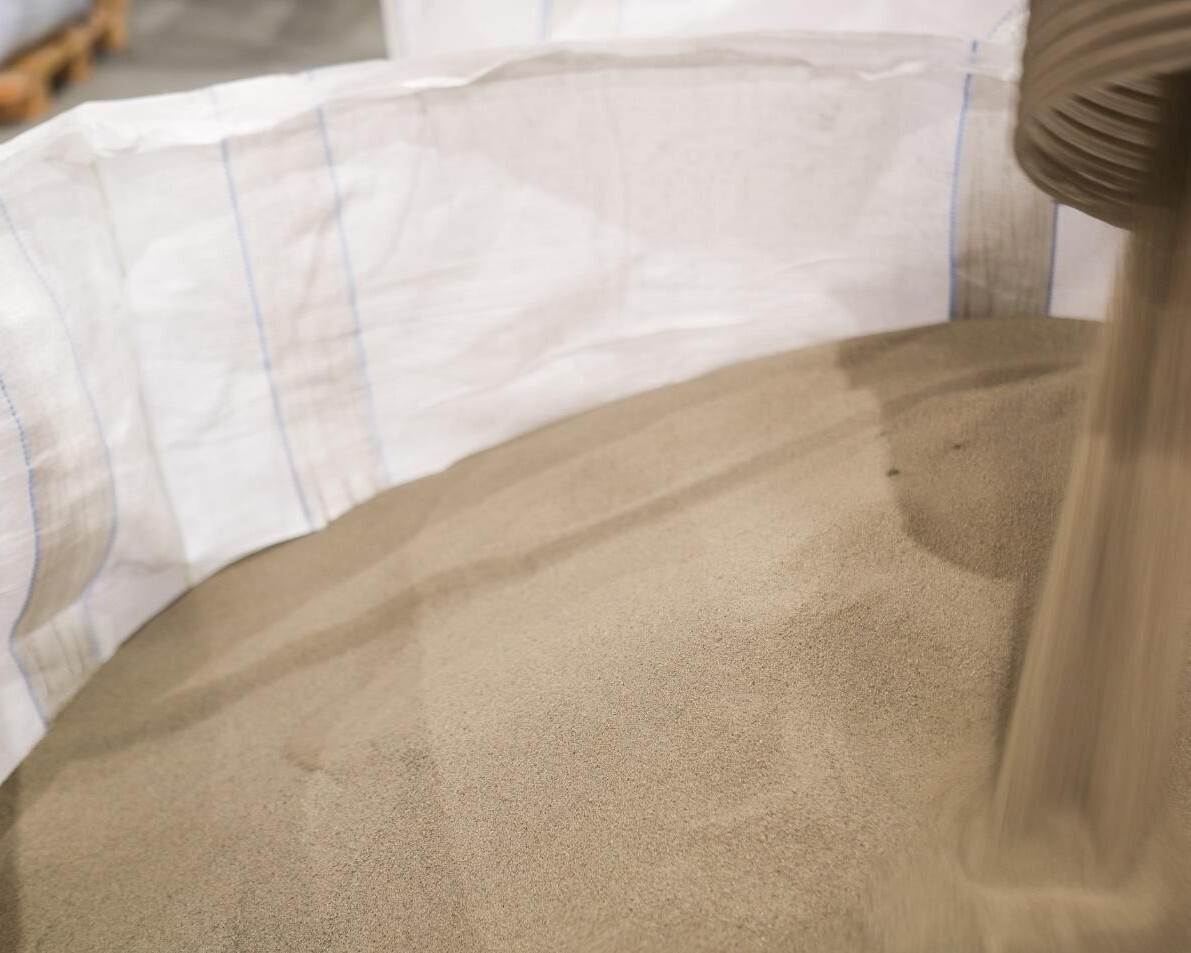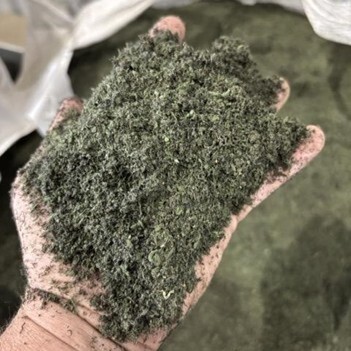Funded project – Building Australia's First Synthetic Turf Recycling Hub
A new Victorian synthetic turf recycling facility to reduce landfill waste while creating local jobs and reusable materials for multiple industries.
Background
Synthetic turf, with a life expectancy of 8 to 12 years, is increasingly being used as an alternative to real turf. When no longer usable, it is disposed of in landfill. Australia disposes of ~130,000 tonnes (2.5 million sqm) of synthetic turf annually, costing businesses approximately ~$3.2 million in disposal fees and wasting $23.7 million worth of usable materials.
As Australia becomes more focused on environmental sustainability, providing an ethical and sustainable end-of-life disposal option for synthetic turf is important for the development and public perception of the synthetic turf industry. Tuff Group has developed and installed Australia’s first 98% sustainable end-of-life processing plant to recycle synthetic turf and recover raw materials such as sand, polyethylene (PE), polypropylene (PP), and styrene-butadiene (SBR). These materials are then used in Tuff Group’s installation services or sold to local businesses for reuse, which helps reduce the overall carbon footprint of synthetic turf and Victoria’s CO2 emissions.
These factors led Tuff Group to develop this solution, addressing a challenging waste issue while promoting the circular economy and delivering positive environmental benefits.
Stages
| 11/11/2021 | Completed planning brief and documentation for project management, schedule and government contract. |
| 31/01/2023 | Sourced site and obtained required permits. Completed design, specification and final quote for approved recycling plant. |
| 31/01/2023 | Purchased approved recycling plant and made deposit payment. |
| 31/05/2023 | Made major payments for equipment. |
| 29/03/2024 | Installation and commissioning, including training and production trials, and commissioned LCA report. |
| 30/04/2024 | Commenced production, project completion and review. |
Challenges
Adverse weather events
Heavy rain in the Albury/Wodonga region saturated the ground beneath our factory, making it unworkable. As a result, we had to wait for winter 2023 to finish and the ground to harden before we could pour the base, delaying the project by approximately 4 months.
Being first and unique
Being the first synthetic turf recycling facility in Australia we had no existing model to follow. Everything was a first, from layout to product delivery, presenting numerous challenges that needed to be addressed. This added time and cost to the project but was essential to achieving a high-quality outcome.
Outcomes – what worked?
Tuff Group embarked on a project to establish Australia's first synthetic turf recycling facility, located in regional Victoria. The facility is capable of processing turf waste and recovering 98% of the raw materials for repurposing and redistribution. The plant's commissioning in March/April successfully achieved this objective.
By recovering and recycling sand and rubber, Tuff Group, APT/Polytan, and other businesses in the synthetic turf industry have successfully eliminated their dependence on raw materials traditionally obtained from quarries and tyre recyclers. The replacement of the Prince of Wales hockey field in Ballarat utilised over 80 tonnes of sand recovered from the recycled Cromer Park Soccer field.
Additionally, the Wagga Wagga running track incorporated 33 tonnes of rubber from the Cromer Park Soccer field. These initiatives demonstrate an ethical alternative and contribute to achieving a circular economy.
The project has proven economically viable, subject to several factors:
Increased landfill fees for recyclable waste
In metropolitan Victoria, the landfill rate for synthetic turf is approximately $300 per tonne, whereas in metropolitan NSW it is closer to $600 per tonne. The majority of recycled fields have been sourced from Sydney.
Prohibition of landfill as an option for synthetic turf
While landfill remains an option, organisations are likely to continue using it due to its familiarity, ease and lower cost, despite the advantages of recycling.
The project has increased revenue and improved profit margins by incorporating recovered and recycled materials into projects, reducing the need to purchase new virgin materials. The methodologies for recycling synthetic turf are anticipated to evolve significantly over the next five years due to advancements in knowledge and innovation. Tuff Group is well positioned to maintain its leadership and investment in this sector.
Tuff Group has identified opportunities to expand into recycling other challenging materials such as tyres, mattresses and solar panels, each having synergies with recycled synthetic turf.
Tuff Group earned recognition as a finalist in the Australian Financial Review Sustainability Leaders List for 2024, in association with Boston Consulting Group. The company was celebrated as a leader in the Manufacturing & Consumer Goods category for its innovative efforts in recovering and recycling synthetic turf. For more details, check out the full article on the Australian Financial Review.
Insights to share with other businesses
Implementing circularity often remains a lower priority due to several key barriers:
- Resistance to organisational change
- Financial investment requirements
- Regulatory framework
Tuff Group advises that in order to adopt a circular business model, both change management and cost challenges should be addressed, unless mandated by regulatory requirements. When legislation supports the transition, it simplifies organisational adjustments and funding processes. However, in the absence of such mandates, organisations should prioritise minimising disruptions to current operations to enable a smoother integration of circular practices.
What’s next?
The project has created several opportunities for future progress:
- Tuff Group has identified two major recycling streams that align with materials recovered from synthetic turf recycling and recovery.
- The company plans to incorporate tyre shredding and granulation with recovered rubber to increase the percentage of recycled material in products made from recycled tyres.
- Mattress recycling opportunities exist through utilising foam from shockpads used in sporting fields and playgrounds.
- The company developed a business case and machinery capable of processing both waste streams in a dual process.
- Despite attempts to engage with federal and state governments, securing traction and funding remains challenging.
From the grantee
“As we age, we consider the future for our children. Are we leaving the world in a better state than when we entered it? Creating Australia's first synthetic turf recycling facility was my contribution to a sustainable future for our children; this vision could make a difference by creating a circular economy in our industry. Sustainability Victoria facilitated our initiative by awarding us a grant, which served as the catalyst for our endeavours.”
Learn more
- Visit Tuff Group.
- Read the AFR Sustainability Leaders List 2024.
- Read The Guardian - Synthetic Turf Recycling.
